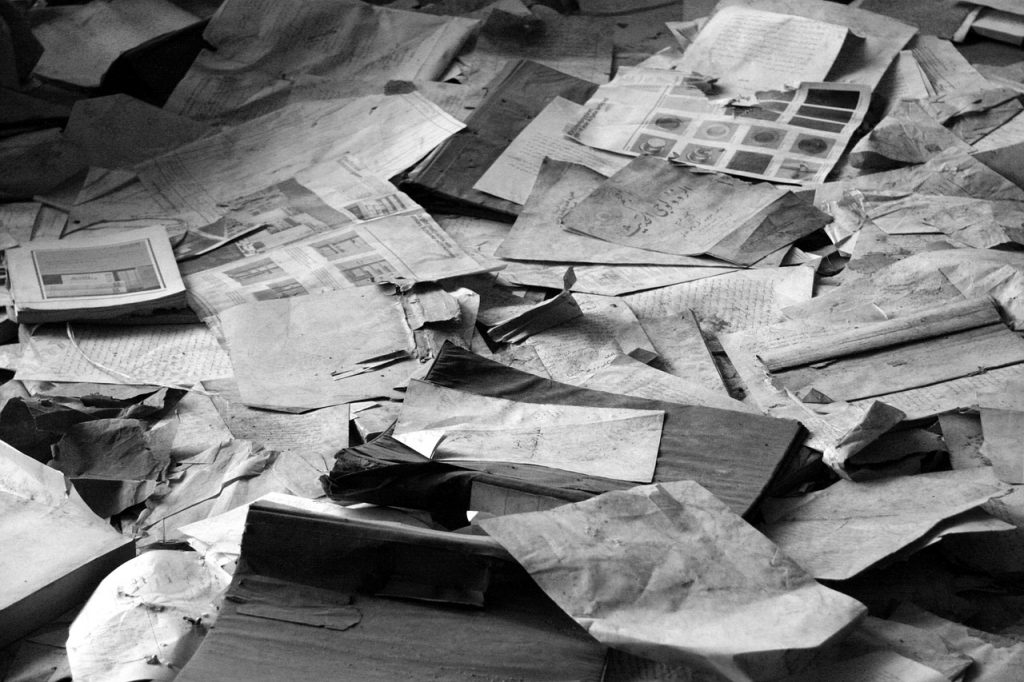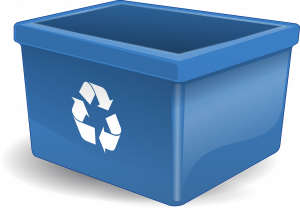
When it comes to recycling, many of us tend to think about plastic automatically. While it’s incredibly beneficial to take steps to reduce plastic use and increase recycling, plastic consumption isn’t the only problem facing the planet. Have you ever thought about how much paper you use? While businesses are moving towards digital ways of working, and we’re becoming increasingly reliant on innovative technology, we’re a long way from reaching a point where we no longer need paper. As paper comes from trees, and environmental concerns become increasingly pressing, it’s a good idea to have a think about whether you’re using too much paper.
Are you using too much paper?
In many ways, the world has become less reliant on paper in recent years, but if you look at the statistics, you may be surprised at just how much paper we use. Almost 15% of global wood harvests are used to manufacture paper, with America alone using around 68 million trees per year for paper production. Over 90% of paper comes directly from trees, and 50% of business waste comprises paper-based products and materials. This may be shocking given that more and more companies are utilising digital systems and advanced technology.
If you think about your own home and your job, how much paper do you use on a daily basis? You might use far more than you think, once you’ve factored in the paper you use for work, kitchen towel, toilet paper, and supplies used for doing arts and crafts and printing off documents or pages you’ve downloaded or found on the Internet.
What are the environmental effects of using too much paper?
There are several important consequences of using more paper than we need. The most significant include:
Deforestation
Deforestation occurs when trees are felled and forests and woodlands are cleared to create paper and other materials. Cutting down trees not only impacts air quality and cleanliness, but it also threatens the future of wildlife species that call forestland their home. Sometimes, deforestion also disrupts the culture and livelihood of indigenous peoples who have lived in the forests for centuries.
Clearing trees has contributed to several species becoming endangered, including orangutans, giant pandas, Asian elephants, chimpanzees, and Amur leopards.
Deforestation can also increase the risk of global warming. It takes 75,000 trees to produce just one edition of a weekend newspaper, and a single tree can produce enough oxygen to sustain three people.
Paper pollution
Plastic pollution has hit the headlines in recent months, but paper pollution is also a major issue. Figures suggest that over 500 million tons of paper will be produced globally by 2020. The manufacturing process produces toxic materials, which are released into the air, water, and soil.
You might also be surprised to learn that when paper isn’t recycled it ends up in landfill, and as the paper decomposes it produces methane gases that are up to 25 times more potent than carbon dioxide as a heat-trapping gas.
Energy consumption:
Media headlines often focus on the environmental impact of plastic production and waste, but did you know that a 2011 research paper said it takes four times as much energy to produce a paper bag than a plastic bag? And as paper also weighs more than plastic, transporationalso uses more energy.
What can I do to reduce paper pollution and decrease waste?
If you think you use more paper than you need to, or you usually chuck paper in the bin once you’ve finished with it, there are some very simple ways you can reduce usage and do your bit to protect the planet. These include:
● Sending emails and texts rather than posting letters
● Buying recycled paper
● Using a shredding service to dispose of and recycle sensitive documents and papers that contain personal information
●Shredded paper, used kitchen roll, cardboard and tissues can be used in your home composting
 ● Placing paper and cardboard products in recycling boxes
● Placing paper and cardboard products in recycling boxes
● Downloading tickets, passes, and receipts instead of printing them out
● Signing up for online bank statements and using mobile banking apps
● Reusing paper when making notes or creating lists
● Encouraging family members, friends, and colleagues to recycle paper
● Suggesting eco-friendly ways of working to your boss, for example, switching paper files and invoices to digital versions
● Buying paper from sustainable sources, and looking for eco-friendly suppliers and retailers
● Supporting causes and brands that invest in replanting and protecting native wildlife species
● Try and buy products with minimal packaging
We tend to use paper without really giving it a second thought. While paper is an incredibly useful material, which we may always be reliant on, there are ways to reduce paper usage and prevent waste. If you think you use more paper than you need to, why not start taking steps to decrease paper pollution and protect forests and precious wildlife species by recycling the paper you use, taking advantage of digital technology, and looking for sustainable products?
